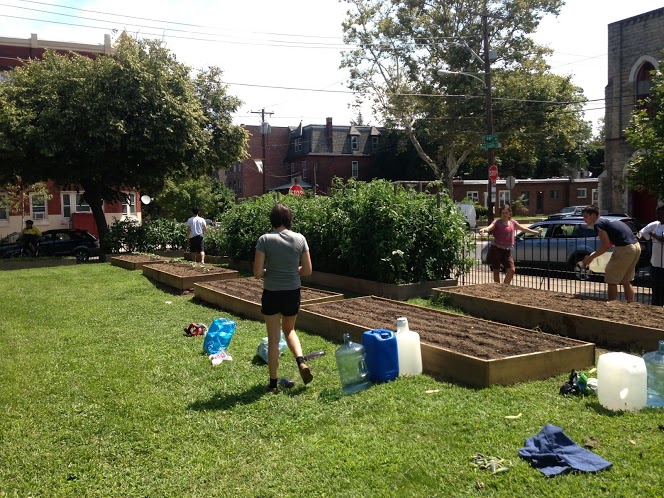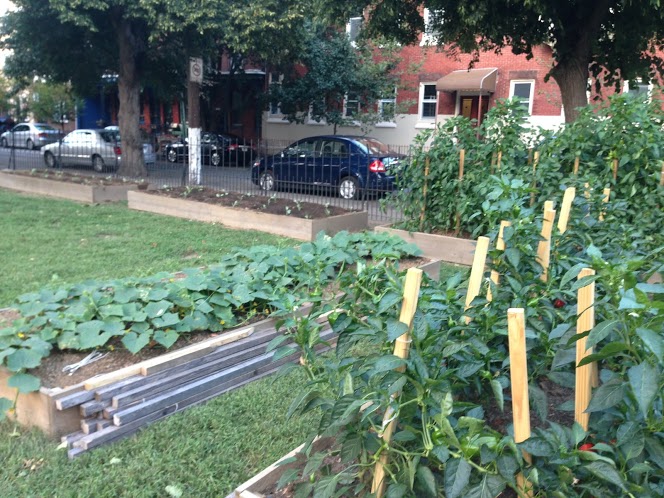On Spring Garden Street between 35th and 36th, 12 garden beds line the perimeter of the Dornsife Center for Neighborhood Partnerships. Heads of cabbage still sway above the planks of wood, but the growing season is over. Soon the last few crops will be harvested, leaving the garden empty until next Spring.
But if a few Drexel University students have their way, the community will pick up the reigns and keep the garden alive for years.
For the most part, the garden was maintained through the growing season by the Drexel Urban Growers (DUG), a small group of students committed to urban farming and sustainability. The group began by building an urban apiary (beehive) on the campus garden at 33rd and Race, but they have since moved their work off the campus and into Mantua.
The Triskeles Foundation had already designated funding to build a garden at the Dornsife Center, but DUG simultaneously expressed interest and ended up helping with the construction and taking over as the garden’s caretaker. The only requirement by Triskeles was that half of all produce be donated to the community.
Christian Brown, president of DUG, noted that the group ended up donating more like 95 percent. “The community loved the produce. They’d often be lined up right when we started harvesting at 11 a.m.,” Brown said. “There was always more demand than supply.”

In response to this demand, DUG built four additional beds and began looking into ways to engage the community for support.
“The idea is to get community members to come out and help with things like harvesting, watering, and weeding,” Brown said. “We had some community members come to harvest days, but not as much as I would have liked. None helped with the weekly chores.”
Brown is hopeful that next year will be better, now that DUG is more established in the community. He also said that the group is still working out the logistics of community outreach, such as communicating with people who do not have computers or use email.
In contrast, the Mantua Urban Peace Garden on 37th and Brown is using a very different method for leveraging volunteers in the community. DUG was involved in the planning and construction phases, but the Pennsylvania Horticultural Society (PHS) paid for and maintains the garden. Their model is to assign a resident a garden bed to care for. So far, the community has come out in force to support the program. There is a waiting list of residents hoping to get assigned.
“Giving members ownership of a bed seems to be a much more effective model,” Brown said.
But the Dornsife Center is just the beginning of DUG’s work in the community. Two of the group’s core members, Brown and Lindsay Bushong, recently won a grant to develop an organization called “Backyard Beds.” The organization plans to build heavily subsidized raised-beds in vacant lots, backyards and communal spaces in Mantua and provide the first year’s worth of seedlings to participants.
This project has yet to begin, and in the meantime DUG has not given up on its existing programs. Already there have been results. The 12 garden beds produced 922 lbs of vegetables this season, according to data from DUG. About 868 lbs were donated.
–Alex Vuocolo
(Photos via DUG)







November 22nd, 2013 at 12:12 pm
This is awesome, what a great idea and it’s great to hear that local students are spearheading this project – it shows that some students really do care about this city, its neighborhoods, and communities.